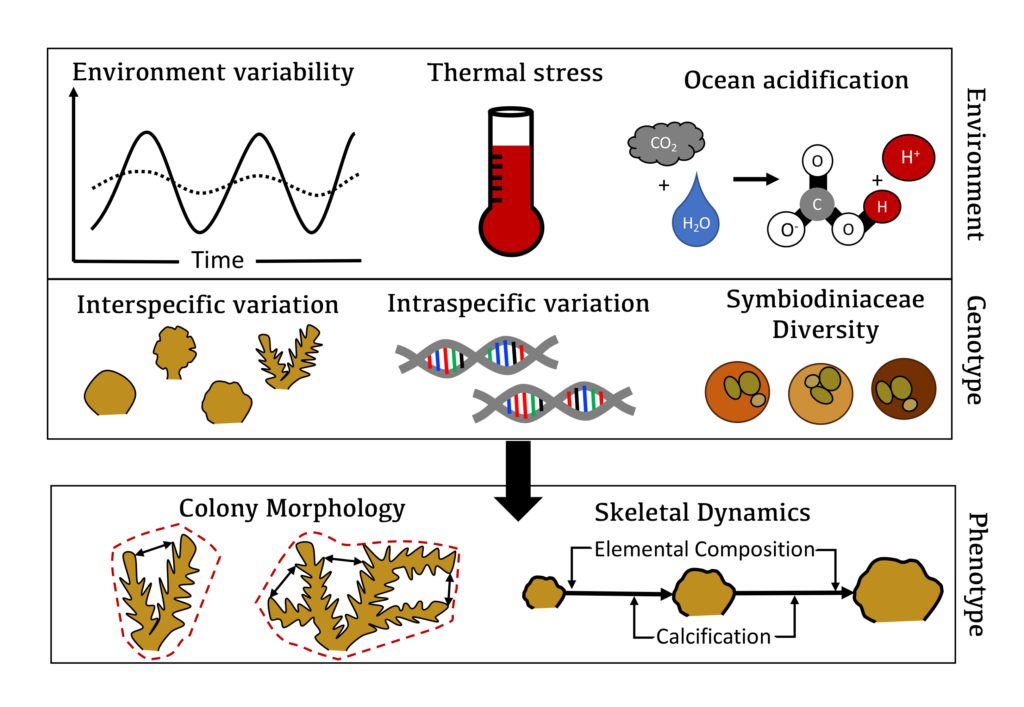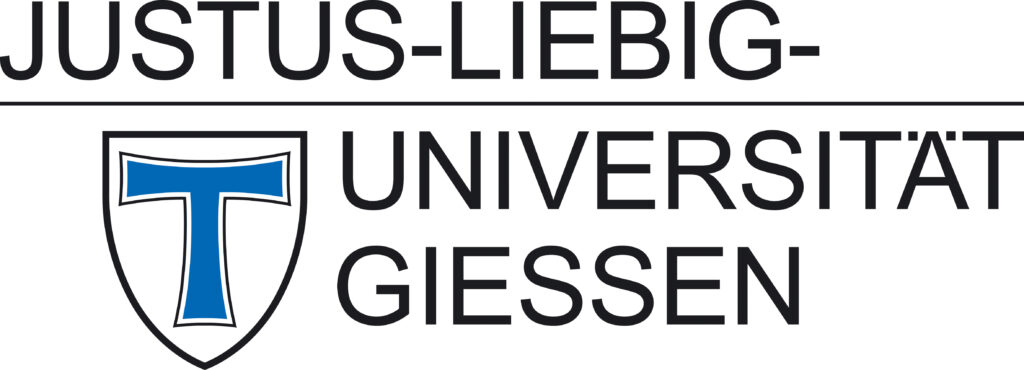
Marine heatwaves and ocean acidification compromise tropical coral reef structures globally, with downstream effects on ecosystem functioning and services of coral reefs. Tropical corals build the coral reef framework with their skeleton, fueled by endosymbiotic algae. Climate change affects skeletal formation processes of corals, which manifests in reduced growth rates and biogeochemical changes during calcification, with unknown effects on the three-dimensional colony form. Thus, changes in skeletal characteristics mirror the corals’ ability to cope with environmental stress and are important study subjects. However, three major knowledge gaps hamper our understanding of the complex effects of climate change on coral skeletal characteristics and thus the future of coral reefs: First, most studies have examined the effects of climate change under stable projected environmental scenarios, but have neglected the influence of short-term environmental variability (diel and seasonal fluctuations). Second, many studies addressing the impacts of climate change on skeletal characteristics of corals focus on a single coral species, with low or no colony replication. Third, previous studies have often overlooked the impact of symbiont community composition. This project will close these knowledge gaps with an experiment on climate change and environmental variability, on colony-replicated coral species harboring controlled and engineered symbiont communities, while integrating multiple levels of skeletal characteristics. Its major goal is to Disentangle Species-, Colony-, and Symbiont-specific effects on coral skeletal characteristics under future environmental variability scenarios (DiSCoSym). The project is split into six work packages: (1) A long-term climate change experiment will be conducted with four coral species that will be exposed to current and projected climate change conditions including two levels of diurnal variability in temperature and pCO2. (2) Clonal coral fragments with engineered photosymbiont communities will be produced and included in the experiment. Changes in (3) coral colony morphology, (4) growth, and (5) calcification will be assessed along with (6) responses in coral skeletal biogeochemistry and isotopic composition. The proposed project addresses core research questions of the SPP2299 ‘Tropical Climate Variability & Coral Reefs’, by investigating how biological and environmental variability affect skeletal characteristics at different temporal scales (Topic A), and exploring how different coral species and their associated symbionts respond to rising temperatures and environmental stress events (Topic B). As such, it will provide both, a window into the past, by disentangling the complex interplay of biological and environmental factors in skeletal formation aiding climate reconstructions, as well as a look into the future, landmarking how future climate change scenarios may induce structural changes in coral reefs.


